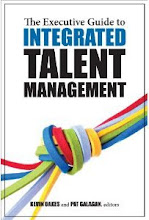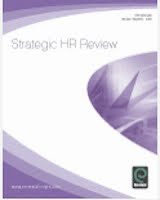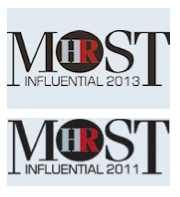It’s been a couple of interesting weeks in UK politics since left winger Jeremy Corbyn was elected as leader of the opposition Labour party.
However the party as a whole still seems far from certain about what caused its failure in the election and whether moving to the left is the best way forward, for the party or the UK. From my perspective, as someone who doesn't usually vote Labour, but am often attracted by some of their proposals, there are several issues to consider. The charges that Labour wasn’t true to itself and therefore didn’t seem authentic, or that it simply became some form of Tory-lite imitation strike me as being overly simplistic labelling of a number of complex and integrated causes which together led to the results it did. However there is undoubtedly some truth in them too. I certainly didn’t feel compelled enough to vote for what I liked about what Labour were offering under Ed Miliband versus some of the things other parties were offering which I found more compelling still.
My own reaction to Jeremy Corby is that he’s very clear about what he believes in and is selling his ideas, or more accurately, engaging people to think differently about them, very well. His style and approach, allowing disagreement, promoting discussion, and connecting with the electorate, albeit partly determined by the nature of his election, fit current lifestyles and life views very well. The mainstream media still doesn’t understand how far these things have changed and so attack Corbyn for poor leadership, encouraging even more people to line up on his side.
This isn’t to suggest that everything has been handled well, or that I necessarily expect the new old Labour party to win the next election, whether or not Corbyn even survives until then. But I do think it has injected a breath of fresh air into the UK and I’d hope that even if Corbyn gets kicked out after his first speech as leader today, that he feels he’s already had a few small successes, in particular challenging the ‘theatrical’ nature of UK politics and helping people see that there are other options to austerity in the way we continue to develop the UK’s economy.
And I think HR can learn some lessons from all of this as well. Firstly, I think we’ve been playing a new-Labour-like game for far too long - accepting existing business paradigms about managing organisations. Yes, we need to work within a capitalist economy and help businesses deliver higher returns from their shareholders. But no business will do this well if that’s their only goal. Our support for capitalism needs to be complemented by a more social - if not socialist - way of operating. For example we need to care for and show our care for our people, supporting those on zero hour contracts as well as those we deem to be our talent; we need to design our workplaces, processes and jobs around our people as well as to achieve business goals; and we need to involve all of our people in deciding what we are going to do. Corbyn’s election and growth in the Labour party membership since he was elected give some indication of the energy which can be unleashed by treating people as people and not simply as workers used to do what a business decides it needs.
A second, potentially even bigger, lesson can be learned from the way Corbyn got elected too. As all readers in the UK at least will know, Corbyn dispensed with new Labour’s attempt to suggest that we can create a more caring approach to people within the existing paradigms about businesses and our economy. For him, we need to intervene more and not just rely on the market to always lead to optimised results; we need to enable everyone to succeed and not just accept that growing inequality is a fact of life; and if we enter another recession we need print money not just to save the banks but to protect people and build for the future.
It’s a choice faced by any small part of a bigger system where the part has a different belief system to the larger whole - to either accept and adopt the more general paradigm (like New Labour) - or - to be clear about how you think differently and why these different beliefs would be better (like Corbyn's new Old Labour). And then to commit to promoting these different views. I think HR’s been unsuccessful in impacting our organisations not because we’ve not been business-like enough, but because we’ve been too like the rest of the business. (See last year’s post on Venus and Mars for more thinking on this.)
Thirdly, Corbyn also made an appeal to the whole organisation, inspiring people at the bottom rather than just influencing those at the top. HR doesn’t have the advantage of Labour’s bizarre election rules but we can still do more of this ourselves - connecting with the employees in our organisations, and using these relationships to show how much we’re valued and needed - though of course this will only work once we’ve changed our perspectives and behaviours, and start focusing at least as much on enabling our people as we do in supporting managers to make people do what our businesses require.
If we start thinking more like this, then I think HR, just like Labour under Jeremy Corbyn, has a chance to be more successful - and by changing the way that organisations run will make our businesses more successful too.
It’s certainly not the prevailing paradigm for how HR needs to operate but I think it could work and I suggest that Corbyn’s success should give us more confidence to try it out.
Jez HR can!
For the sake of full disclosure, I’m not a Labour party member, didn’t vote Labour in the general election or in the Labour leadership ones. However my political beliefs do often align with the left (see my largely ignored petition / pledge on change.org) and therefore sometimes with Labour’s too. If there was an election tomorrow, I'd still not vote Labour but I'd be much more likely to vote for them under Corbyn than I was whilst they were led by Ed Miliband.
Oh, and I don't sing God Save the Queen.
- Consulting Research Speaking Training Writing
- Strategy - Talent - Engagement - Change and OD
- Contact me to create more value for your business
- jon [dot] ingham [at] strategic [dash] hcm [dot] com



































